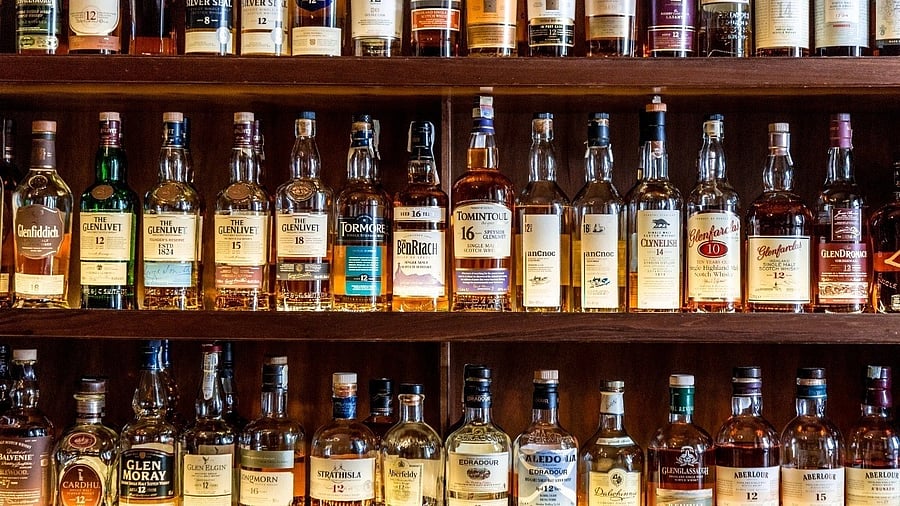
File image of alcohol bottles stored at a liquor shop. (Representative image)
Credit: iStock Photo
A committee headed by retired IAS officer K P Krishnan has proposed two key reforms in Karnataka’s excise sector: lifting the 33-year-old freeze on new liquor licences for retail stores (CL-2) and bars/ restaurants (CL-9) and hiking the fees for various liquor licences. According to the committee’s interim report, these reforms could generate up to Rs 2,200 crore for the state. However, while the proposal might appear to be a pragmatic approach to address fiscal challenges, it demands careful evaluation to ensure that the potential benefits outweigh the risks of unintended social and economic consequences. The freeze, in force since 1992, has created an artificial scarcity, turning the existing 3,995 CL-2 and 3,637 CL-9 licences into highly coveted assets. These licences often change hands at exorbitant rates, frequently through under-the-table transactions, fostering a flourishing shadow market that deprives the state of legitimate revenue.
By lifting the ban, the government aims to dismantle this near-monopolistic system and bring transparency to the sector. Additionally, with the state’s population growing significantly since 1992, the demand for liquor outlets has naturally surged, particularly in rural areas. Currently, liquor is often purchased in bulk from nearby towns and then sold unofficially at inflated prices. This thriving unregulated bootlegging operation not only robs the state of revenue but fuels unmonitored consumption. However, the government must tread cautiously as an increase in the number of vends could lead to a rise in liquor consumption, especially in villages where alcohol-related issues are already prevalent. Simultaneously, the issue of villagers resorting to more hazardous spurious liquor due to the unavailability of legal outlets must be taken into consideration. Moreover, smaller shops operating under existing CL-2 licences, many of which are struggling, may face heightened competition if new entrants flood the market. The Federation of Wine Merchants Association fears that this could destabilise small businesses and lead to economic distress for families dependent on them.
The government policy should not be driven solely by short-term financial gains and the broader social implications of such decisions must be carefully considered. This calls for a balanced approach – one that overrides the economic benefits against the potential rise in alcohol dependency, road accidents and public health issues. While the reforms could boost revenue, they must be implemented alongside robust measures to mitigate social harms, such as stricter enforcement of alcohol sale regulations, public awareness campaigns, and de-addiction programmes. The goal should be to create a transparent system that generates revenue without exacerbating social problems. A well-reasoned, thoughtful policy that prioritises the greater good of society over immediate financial gains is the need of the hour.
